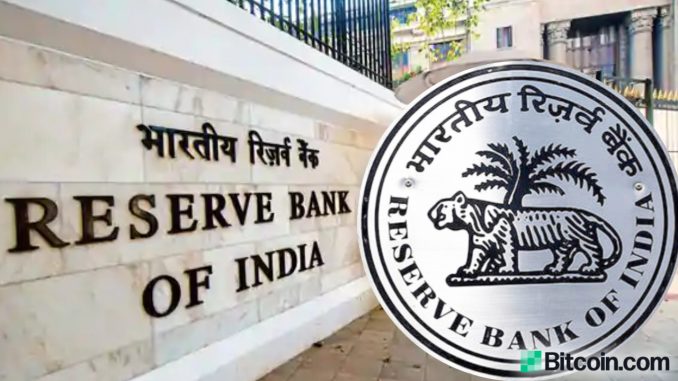
Indian central bank, the Reserve Bank of India (RBI), has officially advised banks that its banking ban circular is no longer valid as it was set aside by the country’s supreme court more than one year ago. Despite the supreme court’s ruling, banks have been citing the RBI circular when dealing with cryptocurrency.
RBI Tells Banks to Stop Quoting Its ‘No Longer Valid’ Circular on Cryptocurrency
India’s central bank, the Reserve Bank of India (RBI), issued a notice on Monday clarifying its position regarding cryptocurrencies. The notice, entitled “Customer Due Diligence for transactions in Virtual Currencies (VC),” aims at “all commercial and co-operative banks, payments banks, small finance banks, NBFCs, and payment system providers.”
The RBI wrote:
It has come to our attention through media reports that certain banks/ regulated entities have cautioned their customers against dealing in virtual currencies by making a reference to the RBI circular … dated April 06, 2018.
The April circular advised banks that they were prohibited in dealing in cryptocurrencies. However, the Indian supreme court quashed this circular back in March of last year, allowing banks to resume providing services to crypto businesses, including cryptocurrency exchanges.
In its notice Monday, the RBI clarified: “Such references to the above circular by banks/ regulated entities are not in order as this circular was set aside by the Hon’ble Supreme Court on March 04, 2020 in the matter of Writ Petition (Civil) No.528 of 2018 (Internet and Mobile Association of India v. Reserve Bank of India),” elaborating:
As such, in view of the order of the Hon’ble Supreme Court, the circular is no longer valid from the date of the Supreme Court judgement, and therefore cannot be cited or quoted from.
The central bank added: “Banks, as well as other entities addressed above, may, however, continue to carry out customer due diligence processes in line with regulations governing standards for Know Your Customer (KYC), Anti-Money Laundering (AML), Combating of Financing of Terrorism (CFT) and obligations of regulated entities under Prevention of Money Laundering Act, (PMLA), 2002 in addition to ensuring compliance with relevant provisions under Foreign Exchange Management Act (FEMA) for overseas remittances.”
While the banking restriction was lifted back in March last year, some banks in India are reportedly still restricting crypto transactions. Some customers reportedly received warning emails from their banks stating that they are not allowed to use bank accounts or credit cards for crypto transactions.
Some media outlets even reported that the RBI unofficially asked banks to cut ties with crypto businesses and traders. The National Payments Corporation of India, however, said it will not ban cryptocurrency transactions through UPI.
Meanwhile, the Indian government is still working on cryptocurrency regulation. A crypto bill was supposed to be introduced in Parliament in the Budget session but it was not. Last month, the media reported that the government planned to set up a panel of experts to work on cryptocurrency regulation.
What do you think about the RBI’s clarification to banks regarding cryptocurrency? Let us know in the comments section below.
Image Credits: Shutterstock, Pixabay, Wiki Commons
Disclaimer: This article is for informational purposes only. It is not a direct offer or solicitation of an offer to buy or sell, or a recommendation or endorsement of any products, services, or companies. Bitcoin.com does not provide investment, tax, legal, or accounting advice. Neither the company nor the author is responsible, directly or indirectly, for any damage or loss caused or alleged to be caused by or in connection with the use of or reliance on any content, goods or services mentioned in this article.






Be the first to comment